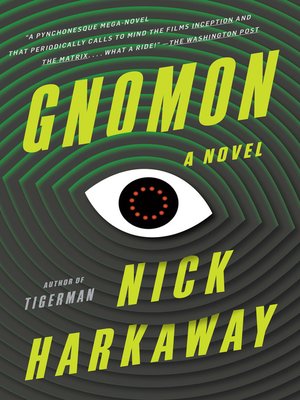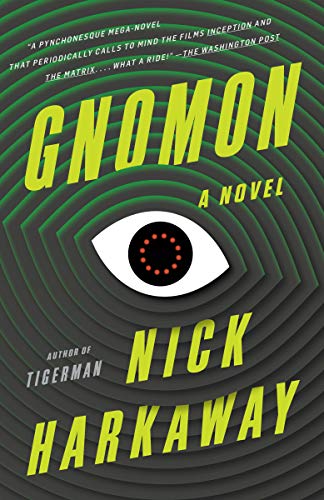


The throwaway genius of this character moment (“laudably low, well done”) is typical of the book, in which it gradually becomes clear that something is very wrong with the Witness and the society it's shaped, something wrong and perhaps supernatural. The Witness flagged her for immediate assistance the moment she emerged from the Faraday cage. She looks for the confirmation signal, and finds a string of messages telling her help is on rthe way, there's no need to press the button. She pulls up a weather forecast for tomorrow, crime statistics for the street – laudably low, well done – and finally fumbles her way to the alarm.

She grasps for the emergency button on her glasses, the one they call the Ave Maria, but her fingers are clumsy and numb. The pigeons fly up and away, taking the world with them, and then she's half crawling, half lying on the front step of the house. She's hardly opened her case when she encounters a suspicious figure and is subjected to a severe beating, and even in the quick description of the aftermath, Harkaway is smoothly deepening the world he's creating: When she's brought in for an interrogation and dies in official custody, a state investigator named Mielikki Neith, “an enthusiastic proponent of both the System and the Witness,” is assigned to investigate the extensive memory recordings taken of Diana Hunter – in which she immediately notices hints and dissonances that trigger her detective's instincts. Most people are completely content to live their lives cupped in the hands of this elaborate set-up, but there are dissenters: one of them, an iconoclastic willful Luddite named Diana Hunter, has tried to disconnect herself from the omnipresent umbilicals of the System – which in itself draws the attention of the authorities. The novel is set in a relatively near future in which society has transformed into a totalitarian surveillance state called the System – a state overseen by an all-knowing AI called the Witness. Now, years later, Harkaway's new novel Gnomon has both its feet planted firmly in the fantastic – this is a big, bristlingly detailed science fiction fantasia whose plots thread and fold back upon themselves and communicate with each other like computer algorithms, if algorithms intended to mystify and captivate instead of misunderstand and hamper. There were flickers and flashes of the fantastic winking all through Nick Harkaway's 2014 novel Tigerman, odd moments when the peripheries of the book's main plot veered well away from the fields we know and then veered promptly back.


 0 kommentar(er)
0 kommentar(er)
